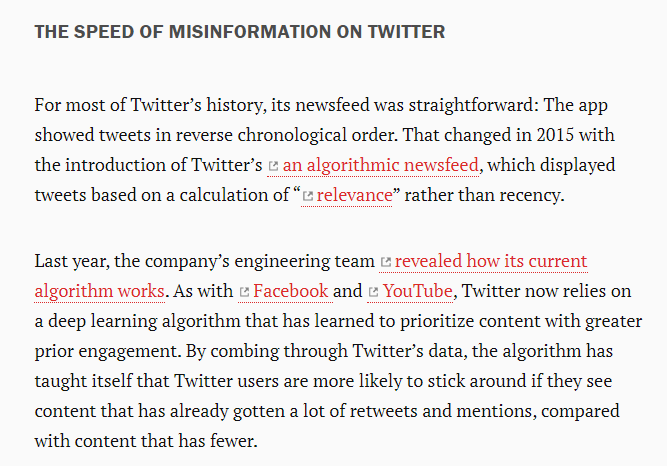What I have researched so far is the relationships between the internet, misinformation and human emotions.
According to the research, if people receive more positive posts on social media, they are more likely to post content with the same positivity. The group who received less positive posts from social media are more likely to post negative things:

The experiment makes me wonder if the contents they receive are misinformation instead of positive/negative posts? Will there be the same effect?
An article explains how misinformation works similarly under big data: If a person constantly views the misinformation, the big data system will know and start sending them similar posts. The big data might not understand whether the posts are misinformation, but humans can manipulate this concept for different demands, such as political brainwashing:

In my design challenge, I want to expose the phenomenon of how media uses misinformation to control people’s emotions and achieve their demands.
Links:
Dr. Javier Serrano-Puche is a Senior Lecturer in the School of Communication and researcher of the Institute for
Culture and Society of the University of Navarra (Spain) (jserrano@unav.es) (http://orcid.org/0000-0001-6633-5303)
Click to download the PDF: DOWNLOAD
How misinformation spreads on social media—And what to do about it: